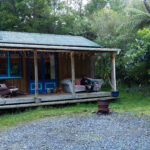Jimmy Webb, a name synonymous with songwriting brilliance, has always been a captivating figure, especially in interviews. Each encounter with him turned into an insightful exploration of songwriting artistry, record production, and arrangement techniques. However, beneath the surface of his early pop success, Webb wrestled with an identity he felt misconstrued – a “middle-of-the-road” label that clashed with his artistic soul. This internal conflict is intricately woven into the story of one of his most iconic and debated songs, the “Macarthur Park Song”.
Webb’s meteoric rise began at the young age of 21 when his compositions dominated the 1967 Grammy Awards. The 5th Dimension’s rendition of “Up-Up and Away” soared to Record of the Year, securing three other Grammys, including Song of the Year for Webb himself as the composer. Simultaneously, Glen Campbell, another prominent interpreter of Webb’s genius, clinched two Best Vocal Performance awards for the now-classic “By the Time I Get to Phoenix.” These accolades solidified Webb’s position as a songwriting force.
Further cementing his mainstream success were hits for Campbell like the evocative “Wichita Lineman” and the poignant “Galveston” (1968-1969). Both topped the country and adult contemporary charts, showcasing Webb’s ability to resonate with a broad audience. However, this widespread acceptance inadvertently boxed Webb into a category he vehemently resisted. He was perceived as detached from the cultural and political upheavals of a turbulent era, a perception that stung deeply, as he saw himself as a young hippie who had inadvertently infiltrated Hollywood’s establishment circles.
“It was clear to me that I had to break away or become something I didn’t want to become, which was this purveyor of hit material for middle of the road artists,” Webb confessed. “No disrespect to the artist, but Glen Campbell was a very middle of the road act, 5th Dimension were very middle of the road, Sinatra had recorded some of my things, also Streisand by that time. The indications were fairly clear that this was what was going to happen to me, and I resisted that with great fury.” This struggle against typecasting was further complicated and highlighted by the unexpected phenomenon of “MacArthur Park”.
Then came “MacArthur Park,” a song that defied conventions and amplified the typecasting dilemma. This orchestral piece, clocking in at an ambitious 7 minutes and 21 seconds – longer than even “Like a Rolling Stone” – became an unlikely hit. Radio edits trimmed it to a more palatable four minutes, but its essence remained epic and unconventional. Sung with dramatic flair by Irish actor Richard Harris, known for his role as King Arthur in Camelot, “MacArthur Park” resonated deeply with audiences. Webb’s multifaceted involvement as writer, arranger, and producer earned him another Grammy in 1969 for Best Arrangement Accompanying Vocalists. Decades later, in 1978, a disco reimagining by Donna Summer catapulted the song to number one once again, demonstrating its enduring appeal across genres. Interestingly, the original version’s rhythm section was laid down by the Wrecking Crew, Hollywood’s legendary studio musicians.
Unveiling the Genesis of “MacArthur Park”: From Cantata to Pop Sensation
The backstory of “MacArthur Park” reveals Webb’s relentless pursuit of musical innovation. According to AllMusic, Webb initially conceived a sprawling 22-minute cantata, envisioned by producer-arranger Bones Howe for The Association. Despite The Association’s mainstream hits like “Cherish” and “Never My Love,” they also possessed counter-culture credibility with “Windy,” a chart-topper released the same week as Sgt. Pepper’s Lonely Hearts Club Band. “Windy” encapsulated the breezy optimism of the Summer of Love, while their earlier hit “Along Comes Mary” hinted at the burgeoning psychedelic lyrical themes of the era.
Howe presented Webb’s cantata to The Association, an ambitious piece intended to occupy an entire album side. However, the group rejected it, along with “MacArthur Park.” Seeking creative autonomy, The Association opted to write their own material for their 1968 album Birthday, which ultimately underperformed. By 1969, the band was essentially defunct. Ironically, “MacArthur Park,” the song deemed too unconventional for The Association, became an unexpected albatross for Webb, further solidifying his image as a writer of grandiose, yet somewhat detached, pop.
Webb recounted the pressures of this typecasting: “I was offered a lot of money to play Las Vegas, to do a cameo and play ‘MacArthur Park’ on a white piano once a night, almost sideshow kind of stuff, really,” Webb explained. “A tremendous amount of money for it. I could see there was a trap there . . . a trap for my own spirit, my own spiritual development. I was not at all a middle of the road person. I was rabidly anti-war…On my first album, Words and Music (1970), one of the most important songs was called “Sleeping in the Daytime,” which was about pollution. I was already involved with these issues, and I felt frankly quite misunderstood by my own generation.”
 Image of Wayne Robins from the original article, showcasing the author’s perspective on music.
Image of Wayne Robins from the original article, showcasing the author’s perspective on music.
Webb’s discomfort stemmed from a deeper disconnect. “Ironically, because of this great success, I was in pain, I wasn’t enjoying it, and I was regretting it, and I was feeling guilty about it,” Webb, the son of a Baptist minister from Oklahoma, revealed. “There was a war on, people were dying, there were things wrong with the society, things needed to be corrected. Because of the success I had, with the artists I had, I was perceived as being middle or to the right of middle politically. I didn’t want to be associated with that at all.”
This period was marked by a certain hypocrisy surrounding Webb and his work. Even those aligned with counter-culture movements might have initially viewed artists like Glen Campbell with a degree of skepticism. Campbell’s renditions of Webb’s songs, like “Wichita Lineman” and “Galveston,” occupied a unique space in mid-American culture, bridging pop and country and propelling Campbell, a former studio musician and Beach Boys collaborator, to his own primetime TV show, The Glen Campbell Goodtime Hour.
Webb’s songs for Campbell resonated with the working class, the very demographic that anti-war activists aimed to connect with. These were individuals who served when drafted, without the privilege of deferments. Decades later, the question arises: do these Jimmy Webb compositions hold more relevance than the louder, more overtly rebellious sounds of bands like Iron Butterfly, Vanilla Fudge, and Blue Cheer? What has truly endured, and what remains as relics of an era defined by both pain and ambivalence?
“MacArthur Park” Lyrics: Decoding the “Cake in the Rain” and Beyond
“MacArthur Park” stood out not only for its elaborate orchestration and Richard Harris’s dramatic delivery but also for lyrics that, in their own way, were as psychedelic and open to interpretation as “Strawberry Fields Forever,” “I Am the Walrus,” or “White Rabbit.” Yet, instead of being lauded for its lyrical innovation, Webb found himself treated as an oddity, a novelty act, largely because of lines like:
MacArthur’s Park is melting in the dark
All the sweet, green icing flowing down
Someone left the cake out in the rain
I don’t think that I can take it
‘Cause it took so long to bake it
And I’ll never have that recipe again
These lyrics, penned by Jimmy Webb, became the subject of much debate and sometimes, ridicule. However, in the context of the late 1960s, a period saturated with surreal and metaphorical language in music, such imagery should have been embraced, not dismissed.
In an interview, the author directly questioned Webb about “MacArthur Park,” leading to a revealing exchange:
WR: WHAT INSPIRED ‘MACARTHUR PARK’?
Jimmy Webb: “It was inspired by a love affair, that would seem to be obvious. It was a love song.”
WR: I WAS FASCINATED BY THE IMAGERY, DARING FOR A POP SONG AT THE TIME.
Webb: I would take issue with that. I don’t think the imagery is any more daring…I know you’re itching to ask me, ‘what the cake out in the rain means.’ I know you are.
WR: I DON’T LIKE TO GET THAT LITERAL. (faked the hand-off, but Webb stopped me at the line of scrimmage)
Jimmy Webb: I know you are. Maybe I’m gonna conduct the interview, ask the questions. Who are the Nights in White Satin’? What is ‘A Whiter Shade of Pale’? What is a “chrome-horse diplomat”? You know it was an era of surreal imagery. Believe me, I have come to regret that song, I have paid my dues! It was really the fashion of the time. What is “the cake out in the rain”? I don’t know. It seems on a certain level to be very clear to me, even after all these years, what I was trying to say. What I was saying was, something beautiful, something precious, had been left untended and lost, and could never be regained. I don’t understand why that’s a mystery.
WR: (chastened somewhat). IT IS CLEAR, THAT’S WHY IT WAS A HIT SONG.
Jimmy Webb: But when you think about it, there was a lot of nonsense going out on the airwaves. ‘MacArthur Park’ wasn’t that unique in terms of its ambiguity. It would be very interesting to write a thesis on that. ‘The Nonsense of the Late Sixties.’ I’ll tell you another one. Jefferson Airplane [“White Rabbit”], “go ask Alice.” If you want to know what ‘the cake out in the rain’ means, go ask Alice!”
In essence, “MacArthur Park song” is more than just a pop hit; it’s a complex artistic statement reflecting Jimmy Webb’s personal journey and his resistance against being confined by genre labels. It stands as a testament to his songwriting genius, his willingness to push boundaries, and the enduring power of music to evoke emotion and spark debate, even decades later.

